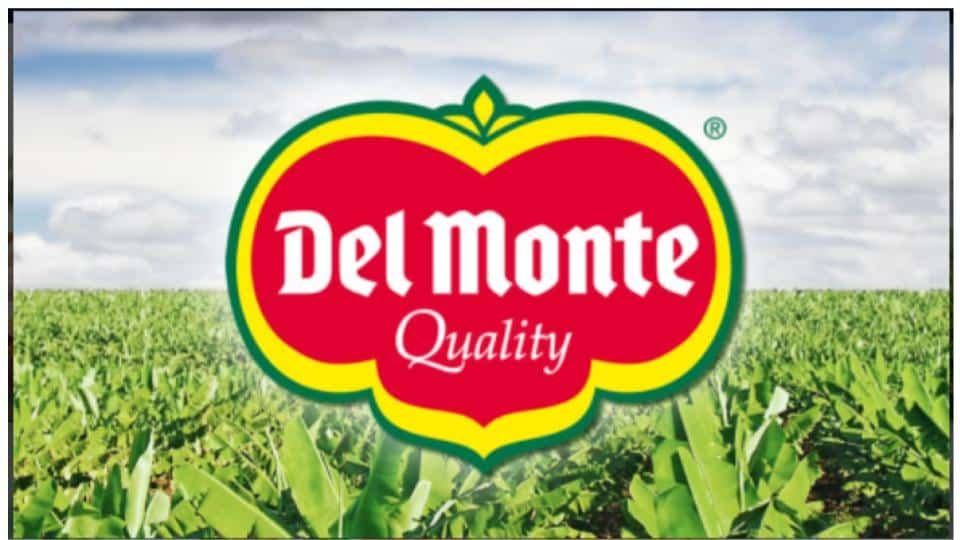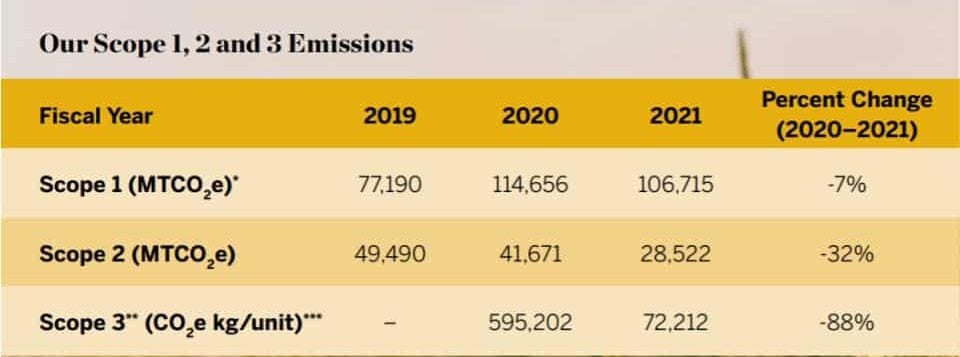Del Monte Foods, a manufacturer of plant-based foods, pledged to be net-zero by 2050 in line with the Science-Based Targets Initiative’s (SBTi) Standard.
Del Monte Foods has been providing plant-based food products for over 130 years. It owns a portfolio of popular brands like Del Monte®, Contadina®, College Inn®, S&W®, and Joyba™.
As Growers of Good, the company’s core purpose is to create a healthy and more hopeful tomorrow. And a critical part of that is its recent commitment to reaching net-zero emissions by 2050.
Del Monte Foods Key Initiatives Towards Net-Zero
To achieve its net-zero goal, Del Monte Foods promised to have measurable near-term targets. These include its science-based 2030 goals to reduce the Scope 1, 2, and 3 emissions in line with the 1.5°C warming limit.
Molly Laverty, ESG Manager at Del Monte Foods, said,
“It’s exciting to be aligned with the most aggressive path to net-zero… The food industry has an important role to play in reducing GHG emissions, and we commit to doing all we can to hasten progress.”
Currently, Del Monte Foods already made significant strides on its journey to decarbonization.
Here are the most important ones outlined in its 2021 ESG Report
Streamlined operations footprint
This includes stopping emissions not needed from facilities that operate at less than full capacity. For instance, replacing CFC refrigerants with a non-warming alternative like ammonia.
As a result, the firm achieved maximum output, electricity savings, and lower operating costs.
Doubled capital investment in production operations
This involves adding automation and other technologies that reduced waste and improve production efficiency.
An example is installing a water recycling system. It reuses the water that conveys foods, leading to a reduction in water usage of 1,000 gallons per day.
Invested in renewable energy
Del Monte Foods installed a 3MW solar array at its Hanford, CA facility, one of the company’s biggest sites. It generated 3.3 million kW hours of electricity that avoided 749 metric tons of CO2 equivalents.
Increased use of rail
The firm used rail by 20% more in the past year. It also optimized truck transportation by raising average truck miles per gallon by 14.3%.
Reduced food waste
This pioneering initiative involves diverting over 25 million pounds of food from landfills. It was due to upcycling efforts and food donations done by the company for 2 years.
The upcycled products are put in a can and given to those facing food insecurity.
How Del Monte Foods plans to reach net-zero
A lot of companies are buying carbon credits to offset their GHG emissions as one way to hit net-zero goals. Del Monte Foods doesn’t go for that but rather opted to cut the bulk of its existing emissions.
The company prefers this approach in line with the Science-Based Target initiative (SBTi) criteria. One major component of it is reducing at least 90% of baseline emissions.
The table below shows the firm’s carbon footprint from 2019 up to 2021 per emissions scope.
Scope 3 data presented in the report reflects employee travel only.
It appears that the company has a long way to go in cutting its Scope 1 emissions.
And so, Del Monte Foods plans to invest more in areas where it can achieve massive reductions and make more progress toward its net-zero pledge.
These include carbon footprint in both direct and indirect operations, Scopes 1 and 2. In particular, the company seeks to invest more in the following:
- Renewable energy,
- Automation,
- Transportation efficiency,
- Regenerative agricultural practices, and
- Eco-friendly packaging innovation
Regenerative Agricultural Practices
This initiative involves investments in sustainable agriculture and biodiversity protection among partner growers. Key measures include:
- Regenerating topsoil by rotating crops, using cover crops, and applying organic compost.
- Analyzing new plant varietals to ensure they adapt well to the local environment.
- Employing integrated pest management to reduce pesticide runoff into waterways.
- Banning pesticide application when pollinators are present.
Eco-friendly Packaging Materials
A big aspect of Del Monte Foods’ net-zero promise is reducing its footprint in packaging. Hence, the firm will invest more in new materials and redesign the existing ones.
Part of this effort is developing a compostable fruit cup using bioplastics. Also, a fruit cup that contains post-consumer recycled content.
The ultimate goal is to use much lesser pounds of materials for packaging. Also, the firm will opt for packaging that uses a higher ratio of recycled materials.
After Del Monte Foods had registered its net-zero commitment with SBTi, it will then create specific 2030 emissions reduction targets.
Once those interim targets are official, they would be another important corporate net-zero report to watch out for.


